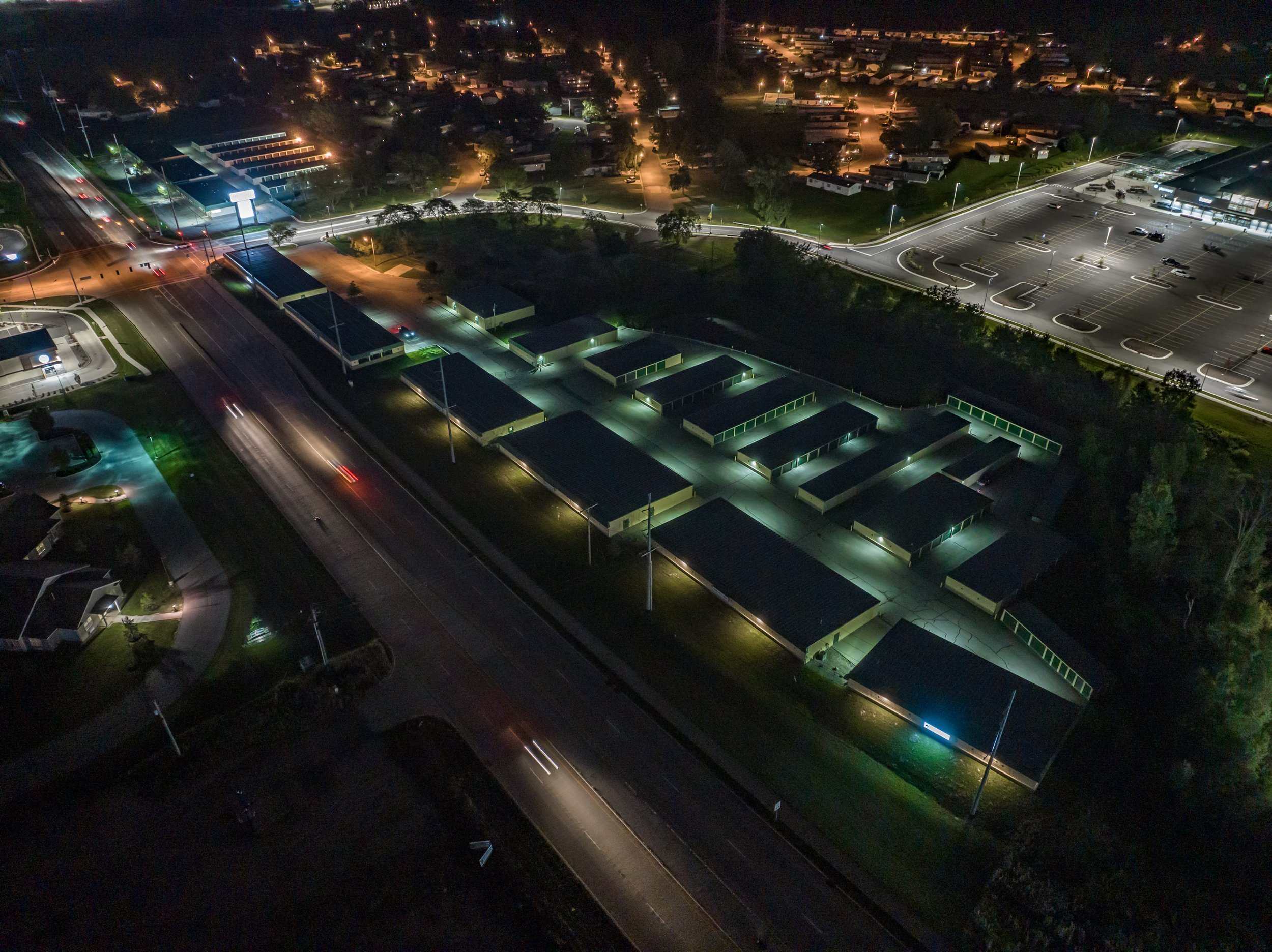Night Droning 101
Recently, I was hired to shoot several properties for a client, both day and night shots. Sure, no problem!
Of course, it’s not exactly that easy. Technically, as a professional Part 107 Certified drone pilot, you can’t just shoot a commercial drone gig without doing a couple things first. Here’s a quick recap:
1) Get Part 107 Certified Yes, you can drone any time you want to … as a hobbyist or for recreational use only, even at night. If however, you are taking photos or video for compensation or sale to another individual (aka for business use or commercial operation), you must fly under the FAA’s Small UAS Rule (Part 107) and register your drone with the FAA. In order to obtain a Remote Pilot Certification from the FAA, you will need to study for and pass an aeronautical knowledge test at an FAA-approved Knowledge Testing Center. Once you are registered and certified, you must have your Remote Pilot Certificate with you whenever you fly your UAS (Unmanned Aircraft System, aka drone).
2) Equip Your Drone with “Anti-Collision Lights” Both licensed and recreational drone pilots are allowed to fly their drones at night without applying for a waiver (more on this later)—as long as they have the proper lights. Yes, your drone probably came with minimal lights already attached—these do not count. You must purchase and add specific anti-collision lights that can be seen up to a distance of three statute miles and have a flashing rate sufficient to avoid collision. I bought the Lume Cube Drone Strobe | FAA Anti-Collision Lights from Amazon. They arrived quickly and were super easy to attach, highly recommend.
In summary, as a commercial Part 107 licensed drone pilot, you can fly your drone at night if you meet two conditions: 1) You have completed the online recurrent training or updated knowledge test covering night flying, and 2) Your drone has been equipped with anti-collision lights that are visible for a distance of at least three statute miles.
But wait — there’s more! Before you fly, check to see if your city has a drone ordinance. Fort Wayne requires that drone pilots notify the city before any flights in specific areas (usually downtown) and to fill out a form with your FAA Pilot Certificate number, the make and model of your drone, liability insurance company name, and time of flight. Otherwise, the local police department will show up faster than you’d expect (not that that has ever happened to me or anything *cough, cough*).
Anything I didn’t cover here can be recapped in more detail at: KnowBeforeYouFly.org
Happy droning!
PS: Don’t forget to remove your ND filter when flying at night, otherwise you’re in for some extra dark shots. (Spoken from experience.)








